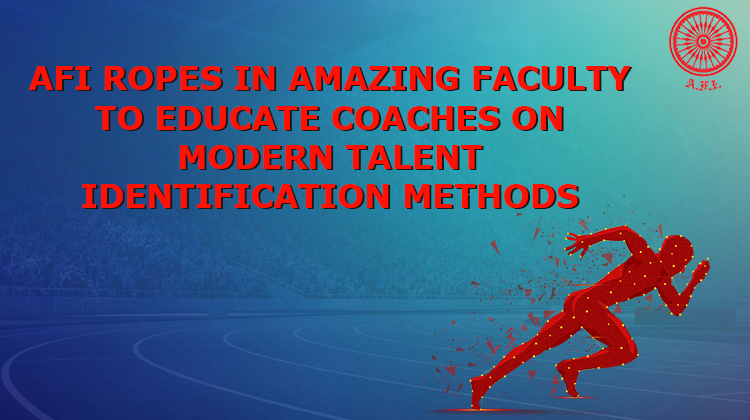New Delhi, February 16: Athletics Federation of India has embarked on an ambitious journey to enhance talent identification methods in the country by organising a four-day seminar titled The ways to search right talent for the World Level 1 and Level 2 Coaches in India and the talent identification teams of the AFI and Sports Authority of India.
AFI roped in a wide-ranging faculty with rich experience, including former Director of Coaching UK Athletics Frank Dick, Prof. Arne Gullich, Head of Department of Sports Science, Kaiserslautern University of Technology, Germany, sports data and coaching consultant Kevin Ankrom (USA) as well as Oliver Scheer, Senior Consultant Kids Athletics World Athletics.
Besides the faculty includes World Athletics Club Director of Education Gunter Lange and Jonathan Boase who is Chief Executive of the Loughborough University, London. The six of them have held 17 sessions for the Indian coaches where they shared methods to identify athletes whose talent can be groomed to compete at the World level.
AFI President Adille J. Sumariwalla said the seminar was in keeping with the Federations desire to ensure that there was modern and uniform talent identification and long-term athlete development systems in the country. “We want all our coaches to embrace contemporary methods to ensure that the country’s vast talent pool in athletics is tapped at the right time,” he said.
Frank Dick gave an overview of three levels of ability – Aptitude, Talent and Genius – and the basics in developing athletes at these levels. He pointed out that performance history alone seldom indicated development potential which is the true purpose of talent identification. He outlined the milestones for performance, coaching and support for India to attain sustainable performance excellence in the international arena.
Prof. Lange identified development stages were defined against optimal age within the Long Term Athlete Development Pathway. And suggested laying a broad general foundation in an athlete before specialisation between 16 and 19 years of age, with a greater focus on the development process than on performance.
Scheer reinforced the message of a multifaceted picture of athlete assessment in talent identification. He explained maturation and environment, the creation of professional sport structures and the importance of training and competition to align with the high-performance pathway. He said early assessment in athletics is inconsistent with long term development as it may risk early specialisation.
Boase shared examples of talent identification in football using an internationally-trialed Artificial Intelligence. He showed that the overall concept was effective in identifying football players who have potential, ability and commitment to significantly advance their career in professional sport and suggested that this concept merited consideration by athletics coaches.
The seminar is another step in the direction of making India a more focused athletics nation. In the past year, AFI has increased its efforts to enhance Coach Education with the aim of having a World Athletics Level 1 coach in every district in the country. It has also conducted workshops for technical officials and presentation officials to ensure quality conduct of all meets under its aegis.







